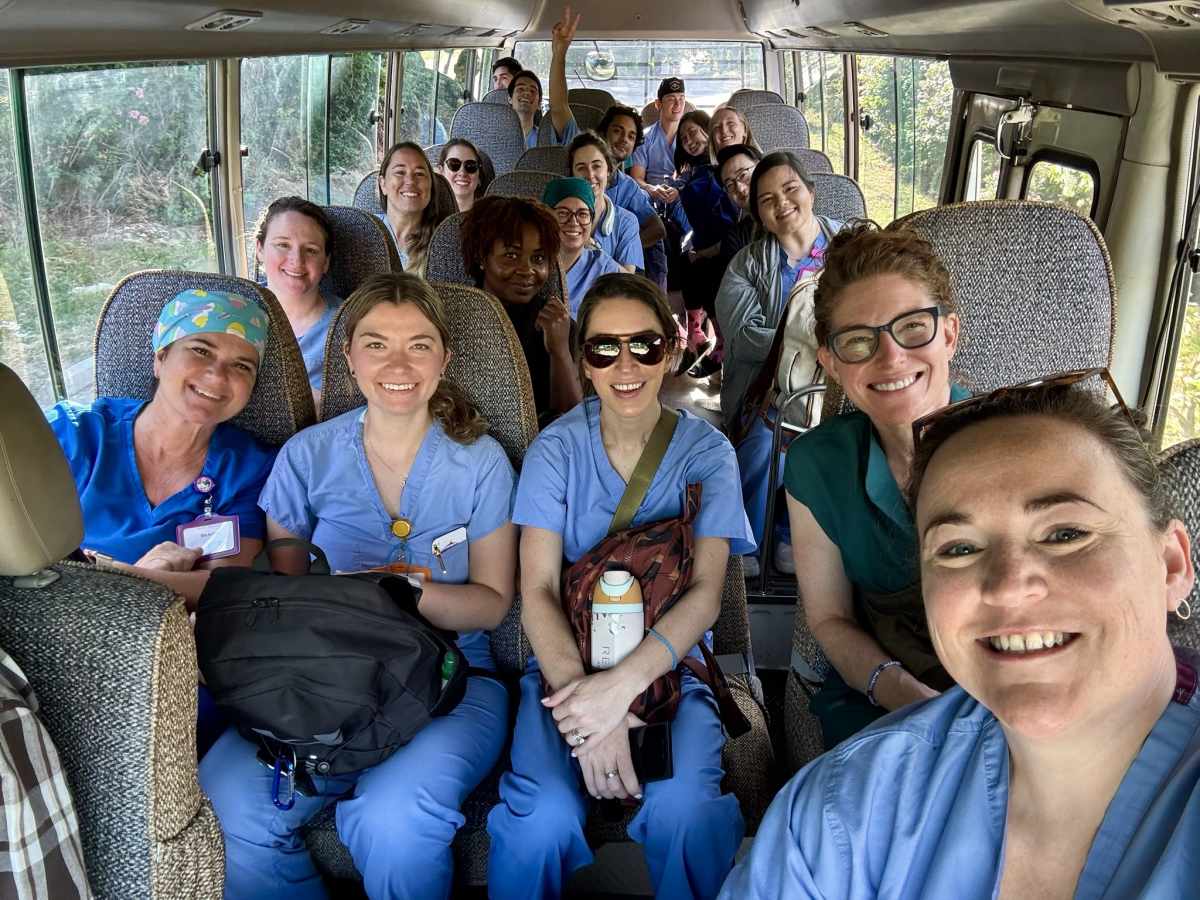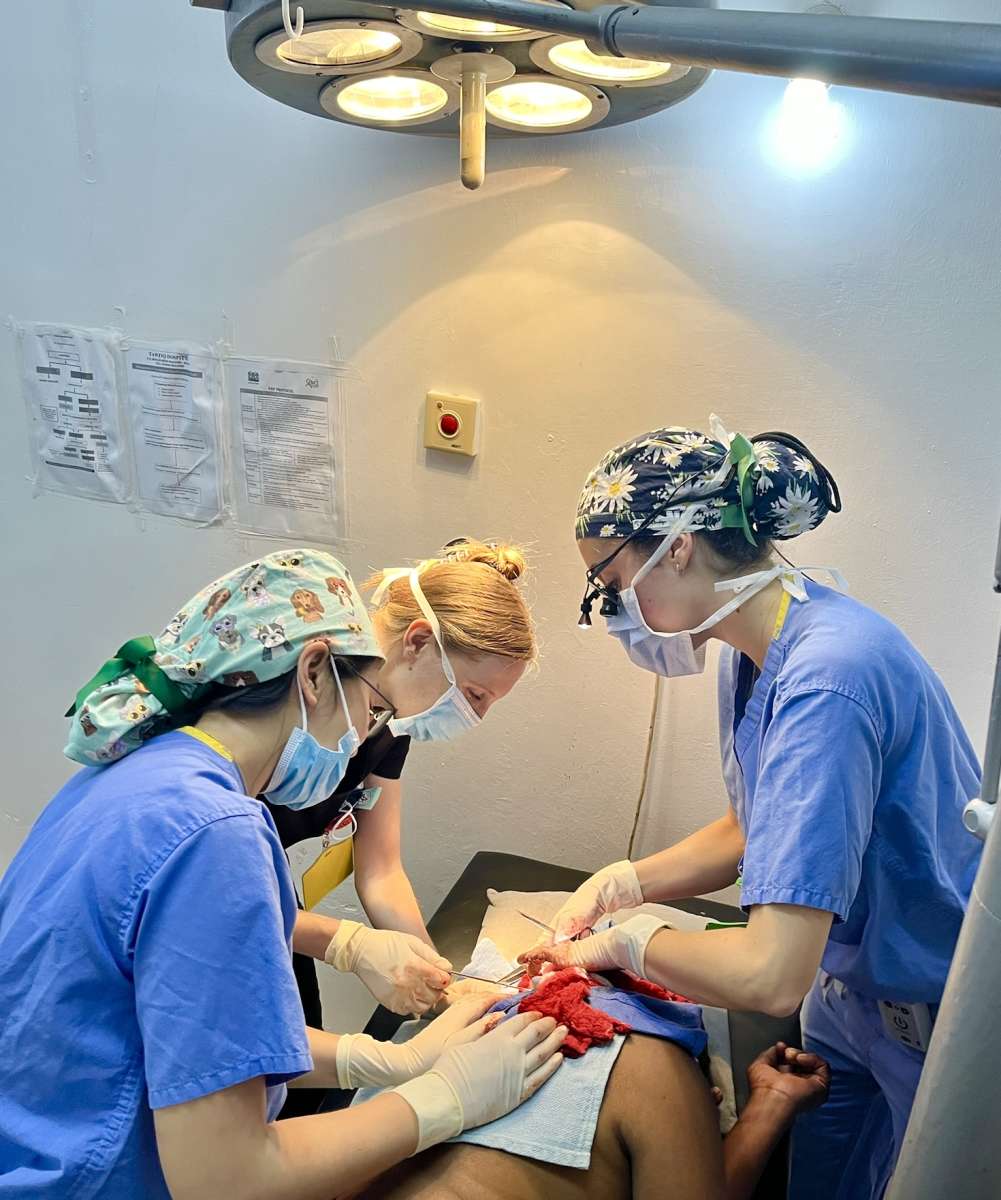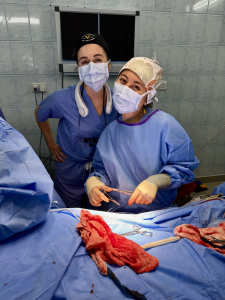Each year Dr. James Netterville leads a group of senior head and neck surgical oncologists from the US in conducting a two-week surgical training camp in Malindi, Kenya. The trip has two primary aims: 1) to provide much-needed, specialized head and neck surgical care to the rural Kenyan population, and 2) to build surgical capacity in Kenya by training Kenyan otolaryngologists to perform complex head and neck surgeries including cancer resections and reconstructions. Trainees from the University of Nairobi travel to the camp in Malindi, Kenya, to join local practicing otolaryngologists for two weeks of hands-on learning in treating patients with complicated head and neck surgical issues under the guidance of senior surgeons from the US. The surgical camp takes place at Tawfiq Hospital where we are fortunate to have use of three operating rooms for nine days. The team typically performs about 60 operations, several of which are free flaps for reconstruction after large cancer resections.
My role as part of the resident team at this camp will primarily be to coordinate patient care and facilitate learning opportunities for the Kenyan residents and attendings. I will aid the team in ensuring excellent pre- and postoperative care of our patients. This will entail managing pre-operative workup and post-operative care, assisting local nursing staff in caring for these complex patients in a culturally competent manner, overseeing senior US medical students traveling with our group, filling gaps in staffing in the operating room when needed, and prioritizing record keeping and ongoing research efforts surrounding the camp. Residents have also increasingly been part of facilitating small procedures under local anesthesia during the camp.
The primary population served during this trip is Kenyans in need of head and neck surgical care, including for neoplasms of the oral cavity, salivary glands, face, and thyroid. With only one otolaryngologist per 454,546 people—far below the WHO recommendation of 1 per 100,000—access to care is limited, especially in rural areas. Most surgeons are concentrated in cities like Nairobi, and many patients cannot afford diagnosis or treatment due to limited insurance coverage. Our trip is well known among local providers, who refer rural patients that would otherwise go untreated. Local otolaryngologists also bring complex cases that exceed current regional capabilities.
This trip is also centered on building long-term surgical capacity in Kenya. Few surgeons specialize in head and neck oncology. Our goal is to support general ENT trainees in managing operable cancers and to encourage more to pursue advanced training (e.g., fellowships in South Africa). U.S. surgeons work side-by-side with Kenyan surgeons and trainees, offering hands-on guidance, case discussion, and education throughout the camp.
We operate in a community hospital with typical national resources to ensure skills are transferable beyond the camp. The trip emphasizes responsiveness to learners' needs and the continuous improvement of educational opportunities. Past camps have included point-of-care ultrasound training and video modules on core procedures, created by U.S. surgeons familiar with the local context, to support ongoing learning year-round.
We anticipate performing a similar number of operations to past camps this year—over 60 major operations in nine operative days and many smaller procedures. These operations and procedures are life changing for patients in this rural part of Kenya who would not otherwise have access to surgical care. Moreover, our focus on building capacity in head and neck surgery will have a profound and lasting impact on both the local healthcare system and the community these physicians serve. Unlike short-term medical missions that only emphasize direct patient care, this trip is designed to create sustainable improvements by empowering local surgeons. Jointly managing complex operations builds skill and confidence. Relationships formed on this trip between US and Kenyan surgeons also provide opportunities for mentorship and exchanges about challenging cases remotely throughout the year.
Additionally, we intend to continue facilitating hearing screenings in local schools and supporting community health workers and local clinics in caring for children with hearing disorders. We plan to identify and work alongside local researchers to better investigate the impact of some of these initiatives. We anticipate this will yield thoughtful, contextually-relevant additions to the literature.
Lastly, I personally envision carrying forward what I learn from this trip into my career. I hope to use my formal education in international health policy alongside this hands-on experience with a well-established surgical training trip to build capacity in other regions in need of head and neck surgical care.










During our two week trip to Malindi, Kenya, we worked alongside colleagues at Tawfiq Hospital to care for patients with challenging head and neck surgical disease. We saw over 200 patients in our 'clinic' and operated on close to 50 patients, including performing several free flap reconstructions for oral cavity cancers and large benign bony tumors. The support provided by the Doximity Foundation for me and my coresidents to assist with this trip allowed the Kenyan residents and attendings who attended the trip to focus on learning from the US surgical attendings in the operating room while we facilitated perioperative logistics and postoperative patient care. We also performed a number of small benign tumor removals under local anesthesia to free up the operating room for larger cases. Most of the patients cared for on this trip would not have received treatment for their disease otherwise due to either the complex nature of their disease process and/or their lack of resources. We learned a great deal from our patients and Kenyan colleagues as well during the trip. It was amazing to witness and hear their perspective on the impact of this annual trip -- it has touched nearly every ENT now practicing in Kenya, and one of the academic attendings how has attended the trip for several years is working to bring free flap reconstruction to Nairobi.